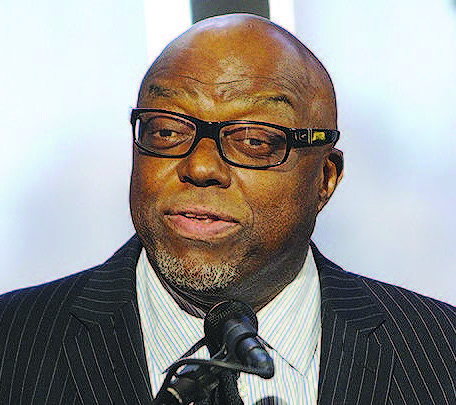by J. Pharoah Doss, For New Pittsburgh Courier
Stanley Crouch, jazzman, cultural critic, literary artist, and public intellectual, died on Sept. 16. He was 74 years old. Crouch wrote essay collections, fiction, a biography of saxophonist Charlie “Bird” Parker, and a photobook called, One Shot Harris: The Photographs of Charles “Teenie” Harris. Crouch was mentored by literary giants Ralph Ellison and Albert Murray.
In the early 1990s The New Yorker anointed Crouch as America’s most outspoken and controversial critic. The magazine boasted that Crouch was “unconstrained by affiliation with any camp, creed, or organization.” That blurb caught my attention. It was on the cover of Crouch’s 1995 collection of essays: The All-American Skin Game, or, The Decoy of Race. These essays were my introduction to Crouch and a writing style he described as “blues-collar.” I was in my early 20s when I read them. Within the first few essays, Crouch lived up to his reputation by striking down two ideas I thought were infallible.

Stanley Crouch (1945-2020)
W.E.B. Dubois
Dubois’ essay collection, The Souls of Black Folks, is considered a masterpiece by literary scholars, but Crouch called the book poorly thought out. Crouch questioned Dubois’ “double consciousness” theory. Dubois claimed Black people in America were Black and American, but a racist society wouldn’t allow them to be both. Dubois stated Blacks have two souls, two warring ideas in one dark body, and the history of Black people in America is a history of this strife—this longing to merge the double into a better and truer self.
Crouch pointed out Dubois never explained how a “better and truer” self could possibly emerge from combining two flawed concepts such as nationality and race. Crouch accused Dubois of investing in the supremacy of identity over individuality. Crouch insisted the “better and truer” self can only emerge from cultivating the consciousness of the individual, which is more complex than double.
Crouch wondered why Dubois’ “double consciousness” theory was still popular in the 1990s. Crouch surmised, because it enabled some Blacks to avoid personal responsibility by seeing the world as oppressed and oppressor. Crouch said his mentor Ralph Ellison knew the problem with race consciousness of whatever stripe negates the question of the individual and imposes some sort of “authenticity” that can trap the single human life inside a set of limited expectations.
Afrocentrism
In 1995 “Afrocentrism” was at the height of its acceptance and popularity amongst mainstream academics and Black autodidacts. “Afrocentric” scholars claimed that every cultural or intellectual achievement attributed to Western Civilization was stolen from Africa. Growing up in the Black community, it was gospel that Eurocentric education suppressed this information in order to keep Blacks believing in their own inferiority. So, when I discovered “Afrocentricity” I thought the Afrocentric scholars were revealing truths the Whites conspired to hide. Afrocentric books had liberating titles such as, They Came Before Columbus: The African Presence in Ancient America, Stolen Legacy: Greek Philosophy is Stolen Egyptian Philosophy, and The African Origins of Major Western Religions.
Crouch said “Afrocentrism” was a simple-minded hustle that descended from what was once called “the professional Negro,” a person whose “identity” and “struggle” constituted a commodity. James Baldwin was a master of being a “professional Negro” who sold the struggle, but “Afrocentrism” took it to another level and created university departments. Afrocentrism had little to offer in intellectual substance. What “Afrocentrism” wanted was power—the power to define and create the past in its own image no matter how conspiratorial its theories. Whenever Afrocentric professors were charged with shoddy scholarship, they retorted their work came from research outside of “European methodology.” Yet none of the “Afrocentric” arguments—all of which were rooted in nationalism, pluralism, and cultural relativity—were original to Africa; they all have their origins in the Western tradition of critical discourse. “Afrocentrism” is absolutely Western, no matter the name changes and costumes of its advocates.
Of course, after reading Crouch for the first time, I was offended by his blasphemous treatment of Dubois and “Afrocentrism,” but I found him compelling and continued to read his work over the years. As I matured, I realized The New Yorker was wrong. Crouch wasn’t controversial. He exhibited the courage of conviction, which is always considered controversial by those who lack it.